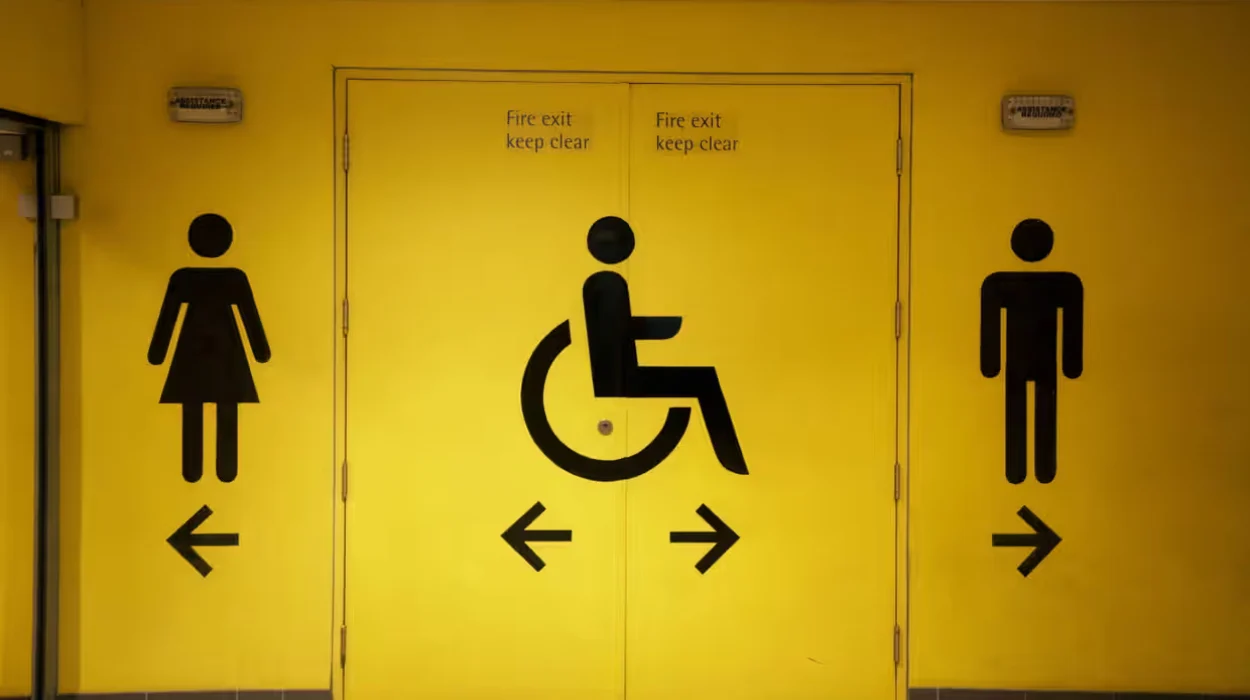UK (Parliament Politics Magazine) – UK Parliament holds off on banning trans women from female restrooms pending official guidance, sparking criticism from women’s rights groups and former MPs.
As reported by The Guardian, the House of Parliament will not ban trans women from using female lavatories, ignoring the Supreme Court’s recent gender decision.
What’s the House of Commons’ stance on trans lavatory rules?
A House of Commons spokesperson said they will await full EHRC guidance before reviewing any policies. It pledged to treat all individuals inclusively, a stance mirrored by the House of Lords.
When asked about rejecting EHRC guidance, the Commons declined to answer.
The Common’s spokesman stated,
“Like many organisations, we are awaiting full guidance from the EHRC on this issue.”
He added,
“However, in advance of that we are reviewing the facilities that are available on the estate and providing support to colleagues where needed. We are committed to treating all those who work in or visit Parliament with respect, and in an inclusive manner.”
A spokesman for the House of Lords said the Upper House was “taking a similar approach to the House of Commons.”
What did Maya Forstater say about Parliament’s toilet policy?
A women’s rights group, Sex Matters, described the statement as a “humiliating blow” for women in Parliament. They expressed concern it could allow biological men to access female facilities and threaten their safety.
Mata Forstater chief executive of Sex Matters, stated,
“These statements from the UK’s Parliament amount to a humiliating blow for women who visit or work in the building. If one institution in the country should show leadership in following the rule of law, it’s the one where the law is made.”
She said,
“By refusing to set rules that make clear that all men, however, they identify, are excluded from women’s toilets, the House of Commons is all but guaranteeing that men who identify as women will continue to enter female-only facilities and intimidate any woman who dares to complain.”
Ms Forstater stated,
“The House of Commons is a workplace for thousands of people, many of them women, not to mention the visitors who come and go in large numbers. The Supreme Court’s judgment was perfectly clear, as are the Workplace Health and Safety regulations which require separate-sex toilets for employees.”
She added,
“There is no excuse for waiting, as the EHRC itself made clear. Each day the House of Commons delays putting its house in order is one more day at risk of being on the wrong side of legal action.”
What did Rosie Duffield say about the Commons and the law?
Rosie Duffield, ex-Labour MP, warned the Commons that it cannot act “above the law.”
Former MP, who says she left Labour over her gender-critical views, stated,
“The House of Commons, like all UK institutions, workplaces, sports venues, schools, and businesses, must abide by the law.”
She added,
“The EHRC will assist people to understand whether they need to make adjustments according to the ruling, but no organisation is above the law.”
What did the latest poll reveal about public views on trans women using female facilities?
A recent poll revealed strong public support in Britain for banning trans women from female restrooms and sports.
A YouGov survey of more than 2,000 adults found that nearly 74% support the Football Association’s move to ban trans women from women’s football.
According to the poll, 61% oppose allowing trans women, biological males who identify as females, to use female restrooms. The Sex Matters-commissioned survey revealed that 63% believed the court’s decision was correct, while 18% disagreed.
What did Susan Smith say about public support for women’s rights and the Supreme Court ruling?
Susan Smith from For Women Scotland, the organisation that brought the case to the Supreme Court, remarked,
“For all the noise created by activists in recent weeks, this polling indicates that most people believe that women’s human rights matter and that the court acted correctly in determining that robust, clear definitions were critical to ensuring that lesbians and gay men were not sacrificed or redefined in law.”
Ms Smith added,
“We are pleased that there is evidence of heightened awareness of the case in Scotland in particular, which bears out our belief that the more governments push gender identity ideology, the more failings are revealed which strengthens public opposition.”
Supreme Court ruling on trans women under the Equality Act
On April 16, the Supreme Court ruled in a landmark judgment that trans women do not qualify as women under the Equality Act.
In a comprehensive 88-page ruling, Lord Hodge, alongside Lords Reed, Lloyd-Jones, and Ladies Rose and Simler, stated that although the Equality Act does not explicitly use the term “biological” when defining man or woman, “the ordinary meaning of those plain and unambiguous words corresponds with the biological characteristics that make an individual a man or a woman.”


